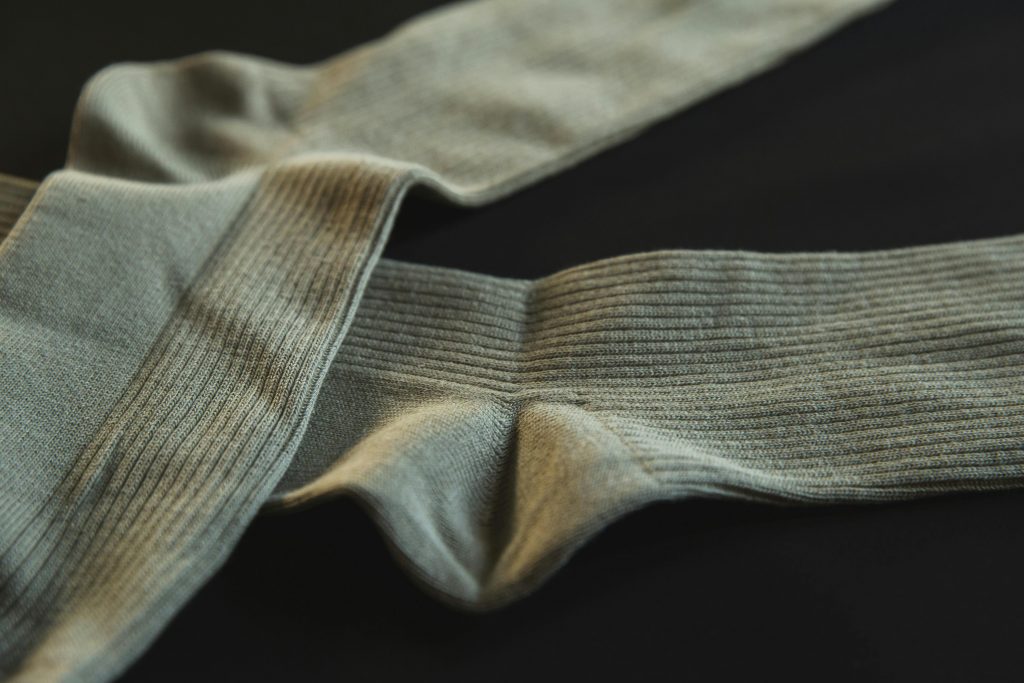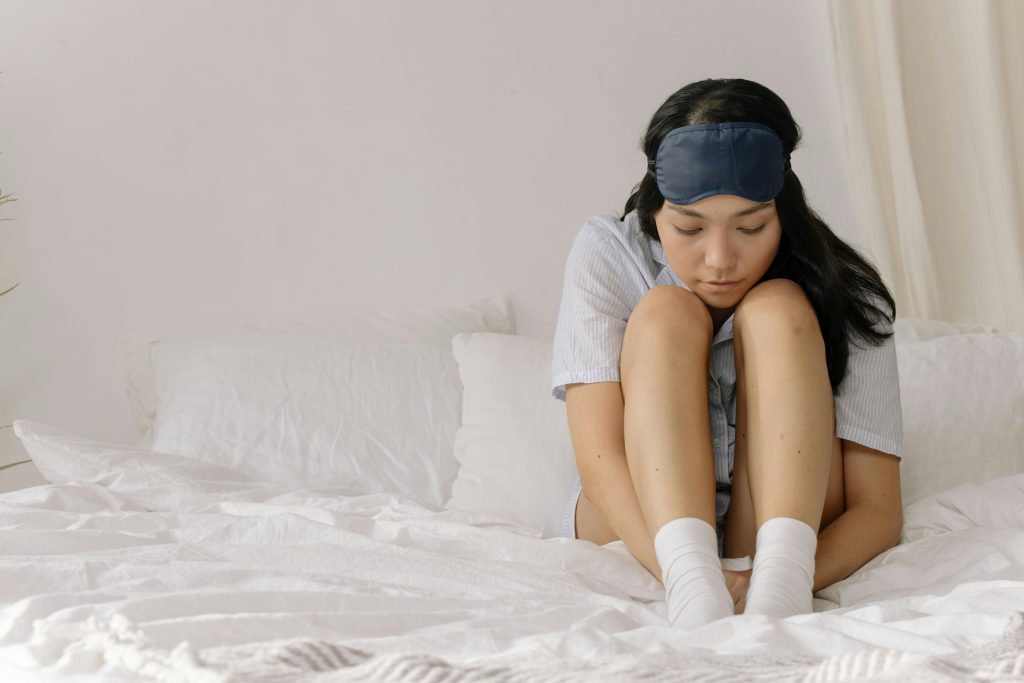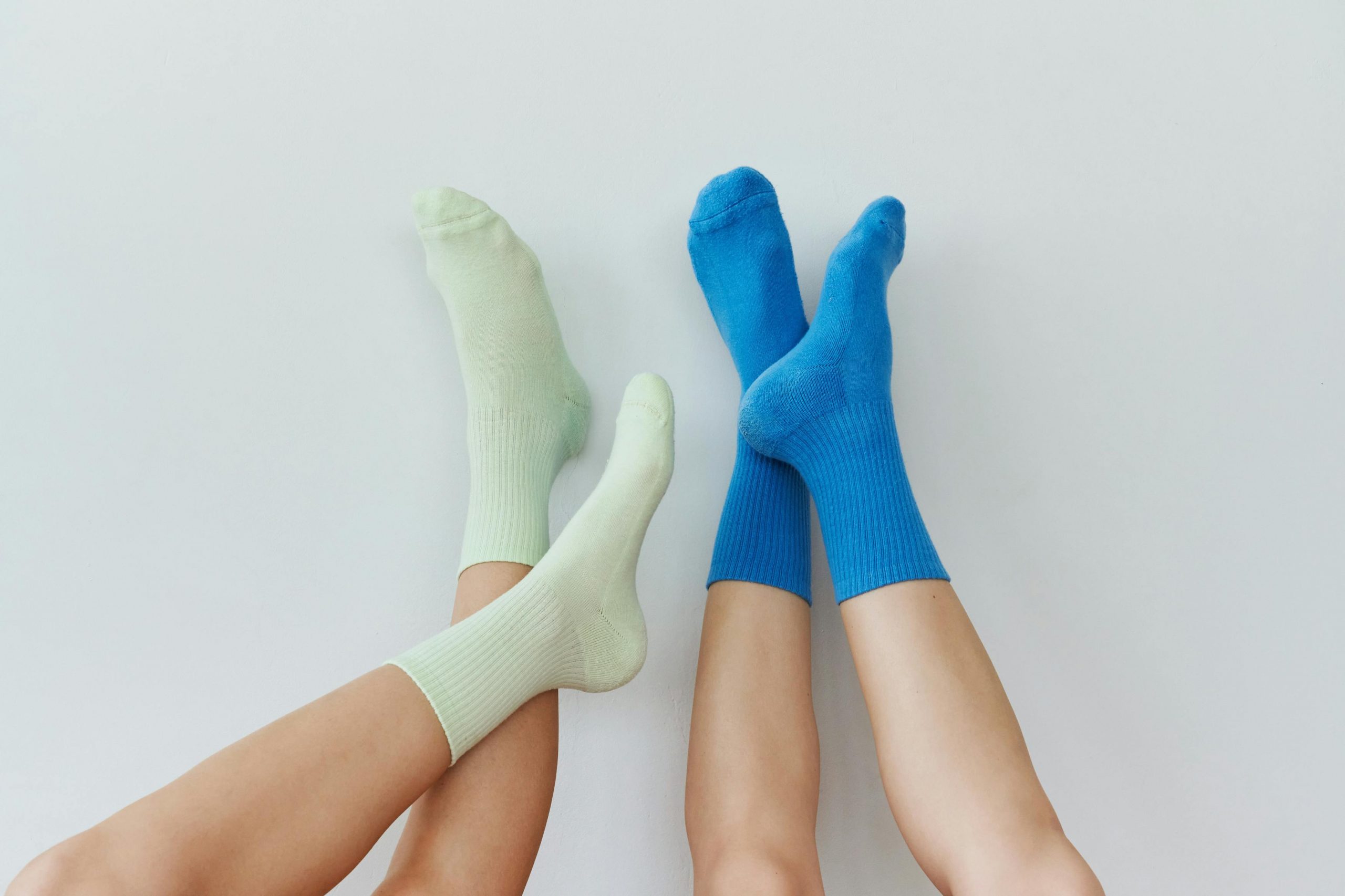Compression socks have become increasingly popular for improving circulation, reducing swelling, and aiding in recovery after long periods of standing, sitting, or intense physical activity. But if you’ve been considering wearing compression socks during sleep, you might have some questions. Is it safe to wear them overnight? Are there benefits to wearing compression socks while you sleep?
In this article, we’ll dive into whether it’s okay to sleep in compression socks, the benefits they offer, potential risks, and expert recommendations on when and how to wear them. Whether you’ve been prescribed compression socks by a doctor or are considering wearing them for general health benefits, this guide will help you make an informed decision.
What Are Compression Socks?

Before we explore whether it’s safe to wear compression socks while sleeping, let’s first understand what compression socks are and how they work.
Compression socks are specially designed garments that apply pressure to your legs and feet. The pressure is strongest at the ankle and gradually decreases as it moves up the leg. This graduated compression helps to improve blood flow and reduces the risk of swelling and discomfort.
These socks are often used by people who spend long hours on their feet or those who have conditions like varicose veins, deep vein thrombosis (DVT), or edema. Athletes also use compression socks to enhance performance and recovery, as they may help reduce muscle soreness after exercise.
Benefits of Compression Socks
Compression socks are specifically designed to offer a range of benefits, particularly for your legs and feet. Whether you’re recovering from surgery, dealing with circulatory issues, or just looking for extra support during a workout, these socks can be incredibly helpful. Here’s a closer look at the key advantages of wearing compression socks:
1. Improved Circulation
One of the primary benefits of compression socks is their ability to improve circulation. By applying gentle, graduated pressure to your legs, these socks help blood flow more effectively through the veins, especially in the lower extremities. This is particularly helpful for individuals with poor circulation or those who are prone to blood pooling in the legs, such as people who spend long hours sitting or standing. Improved circulation not only boosts overall leg health but also helps to prevent complications like varicose veins.
2. Reduced Swelling
Swelling in the legs, feet, and ankles is a common issue for many people, particularly those who stand or sit for long periods. Compression socks work by promoting better fluid movement and preventing fluid buildup in the legs. This helps to reduce swelling caused by things like standing on your feet all day, sitting during long flights, or experiencing other circulatory issues. Wearing compression socks can provide immediate relief by supporting the veins and helping to maintain fluid balance in the legs.
3. Pain Relief
Compression socks can also provide much-needed pain relief for individuals suffering from conditions like varicose veins, leg cramps, or general discomfort in the legs. The gentle pressure applied by the socks supports the veins and muscles, reducing the pain associated with poor circulation and helping to relieve muscle fatigue. This can be especially beneficial for people who experience aching or tired legs after long periods of activity or for those dealing with chronic conditions.
4. Reduced Risk of Blood Clots
For people who are at a higher risk of developing blood clots, such as those recovering from surgery, compression socks are often recommended by healthcare professionals. The pressure from the socks helps to keep blood flowing properly through the veins, reducing the likelihood of clot formation. This is particularly important for individuals who are immobile for extended periods, as it can prevent deep vein thrombosis (DVT) and other serious complications.
5. Faster Recovery After Exercise
Athletes and fitness enthusiasts often use compression socks as a tool for faster recovery after intense physical activity. By improving blood circulation, these socks help remove waste products like lactic acid from the muscles and deliver fresh oxygen and nutrients to aid in muscle repair. This reduces muscle soreness and fatigue, enabling athletes to recover more quickly and get back to their training sooner. Compression socks also provide extra support during physical activity, reducing the risk of injury and helping to maintain performance.
Can You Sleep in Compression Socks?
Now that we understand what compression socks do, let’s address the main question: Can you sleep in compression socks?
The short answer is: Yes, you can wear compression socks while sleeping. However, there are a few things you need to know before you decide to wear them overnight.
Benefits of Sleeping in Compression Socks

Wearing compression socks while you sleep offers several advantages, especially for individuals with certain health conditions or specific fitness goals. The benefits extend beyond just the daytime use of these socks, providing improved circulation, pain relief, and better recovery overnight. Here’s a closer look at the top benefits of sleeping in compression socks:
1. Enhanced Blood Flow While Resting
When you sleep, your body is in a horizontal position, which naturally helps to improve circulation in the legs. Blood flow has an easier time returning to the heart as gravity isn’t working against it. However, wearing compression socks while you sleep can further enhance circulation by applying gentle pressure to the veins, especially in the lower legs. This increased blood flow helps to reduce the risk of blood pooling or swelling, particularly in those with poor circulation or long-term health conditions that affect blood flow. The added support ensures that your legs stay comfortable and well-circulated while you rest.
2. Preventing Swelling Overnight
For individuals prone to leg swelling, wearing compression socks during sleep can help to reduce fluid buildup in the legs, ankles, and feet. Conditions like edema, varicose veins, or chronic venous insufficiency can lead to the accumulation of excess fluid in the lower extremities, which causes swelling and discomfort. Compression socks provide continuous support throughout the night, preventing swelling by encouraging the movement of fluids back into the bloodstream. This can be especially beneficial for individuals who find that their legs swell more at night after a long day of standing or sitting.
3. Post-Workout Recovery
Athletes and active individuals can greatly benefit from wearing compression socks while sleeping to speed up post-workout recovery. After intense exercise, lactic acid and other metabolic waste products accumulate in the muscles, which can cause soreness and fatigue. Compression socks help to increase blood flow to the muscles, facilitating the removal of these waste products and delivering fresh oxygen and nutrients for muscle repair. This enhanced circulation aids in muscle recovery, reduces soreness, and promotes faster healing. Sleeping in compression socks is an effective way to help your muscles recover overnight, so you’re ready for your next workout.
4. Leg Pain and Discomfort Relief
If you suffer from leg cramps, muscle soreness, or general discomfort from long hours of standing or sitting, wearing compression socks overnight may provide much-needed relief. Compression socks work by applying gentle pressure that supports the veins and muscles, reducing strain and discomfort. The added support can ease leg cramps, reduce pain, and provide a sense of comfort, especially if you’ve been on your feet all day or dealing with conditions like restless leg syndrome or varicose veins. Wearing compression socks overnight helps to alleviate discomfort and ensure you wake up with more relaxed, less painful legs.
Potential Risks of Sleeping in Compression Socks
While there are many benefits to wearing compression socks, there are a few potential risks that you should be aware of, especially if you decide to wear them while sleeping.
- Overuse of Compression
Compression socks should be used in moderation. If they are too tight or worn for extended periods of time, they can restrict blood flow and cause discomfort. If you experience numbness, tingling, or excessive tightness while wearing compression socks at night, remove them immediately.
- Skin Irritation
Wearing compression socks for long hours, especially while sleeping, can cause skin irritation or pressure sores. If the socks don’t fit properly or are made from irritating materials, they may cause chafing or redness.
- Increased Risk for Certain Conditions
If you have certain health conditions like peripheral artery disease (PAD) or other circulatory problems, wearing compression socks at night may not be recommended. Always consult with your healthcare provider before using compression socks, especially if you have existing medical conditions.
- Incorrect Fit
It’s crucial that your compression socks fit properly. Socks that are too tight can cause more harm than good. They may restrict blood flow or cause discomfort. Be sure to choose the correct size and compression level for your specific needs.
How to Wear Compression Socks While Sleeping
If you’ve decided that wearing compression socks while sleeping is right for you, here are some tips to ensure you get the most benefit while avoiding potential risks:
- Choose the Right Compression Level
Compression socks come in various levels of pressure, typically measured in millimeters of mercury (mmHg). A lower compression level (15-20 mmHg) is often recommended for general use, while higher levels (20-30 mmHg or more) may be prescribed for medical conditions. Consult with a healthcare professional to determine the best compression level for you.
- Ensure a Proper Fit
Compression socks should fit snugly but not be too tight. They should feel comfortable around the ankle and gradually loosen as they move up the leg. If the socks are too tight, they can cause discomfort and restrict blood flow. Make sure to measure your legs and choose the right size.
- Use Compression Socks as Part of a Healthy Routine
Wearing compression socks overnight can be beneficial, but they should be used as part of a healthy lifestyle. Ensure that you’re also staying active, eating well, and getting enough rest to support overall circulation and leg health.
- Check for Discomfort
Before you go to sleep, make sure that the socks aren’t causing any discomfort. If you feel any pain, numbness, or tingling, remove them immediately. It’s essential to listen to your body and adjust as needed.
- Consult with a Healthcare Provider
If you have any medical conditions, it’s always best to consult with your doctor before using compression socks, especially overnight. They can advise you on the appropriate compression level and duration of use.
Who Should Wear Compression Socks at Night?
While wearing compression socks at night can be beneficial, not everyone needs them. Here are some people who may benefit from wearing compression socks while sleeping:
- Individuals with Edema or Swelling
If you have edema or experience swelling in your legs, wearing compression socks while you sleep can help prevent fluid buildup and reduce swelling overnight.
- People with Varicose Veins
Compression socks can help alleviate symptoms of varicose veins, such as aching and heaviness. Wearing them at night may provide additional relief.
- Athletes and Active Individuals
For those recovering from intense exercise or sports activities, wearing compression socks while sleeping can aid in muscle recovery and reduce soreness.
- People with Circulatory Issues
If you have circulation problems, such as deep vein thrombosis (DVT) or poor blood flow, your doctor may recommend wearing compression socks at night to improve circulation and prevent complications.
Conclusion
So, can you sleep in compression socks? The answer is yes, but with a few precautions. Wearing compression socks overnight can offer numerous benefits, such as improved circulation, reduced swelling, and faster recovery after exercise. However, it’s essential to ensure that you’re wearing the right fit and compression level, and to consult with a healthcare provider if you have any medical conditions.
By following the tips and guidelines in this article, you can make an informed decision about whether wearing compression socks while sleeping is right for you. With the right approach, compression socks can be a valuable tool in maintaining leg health and comfort.

